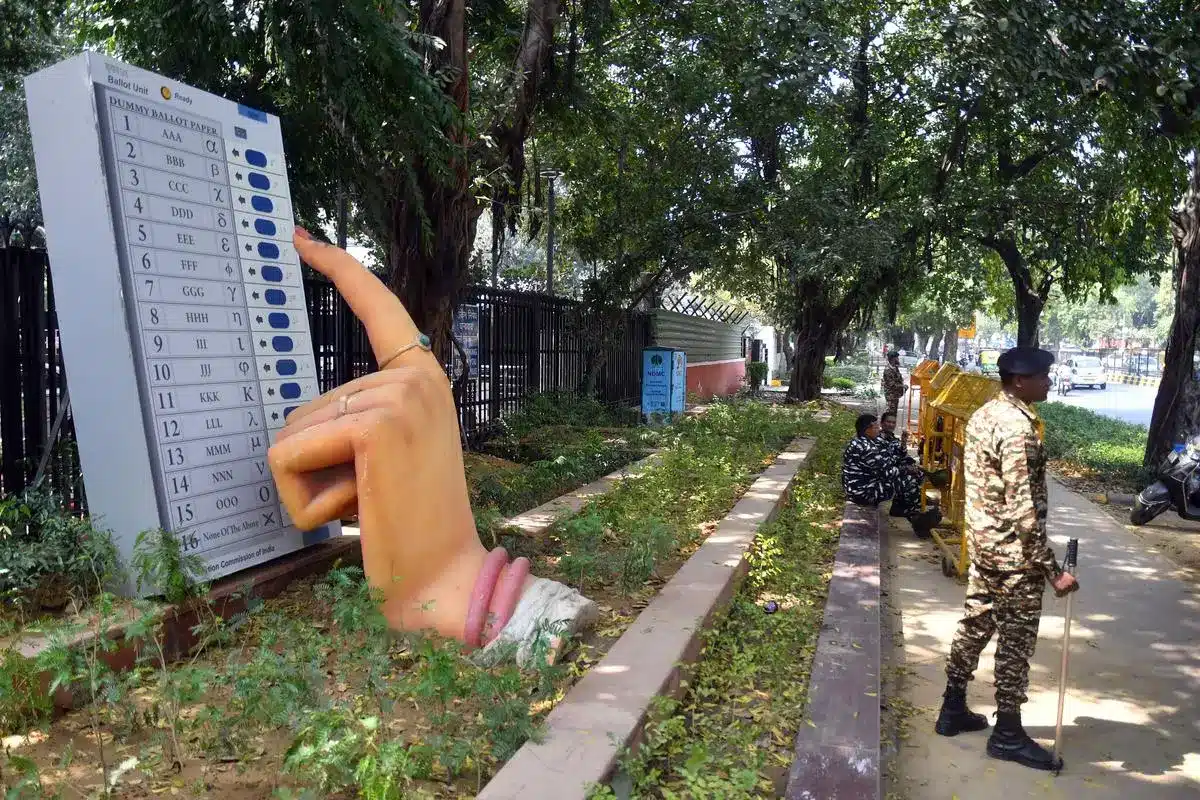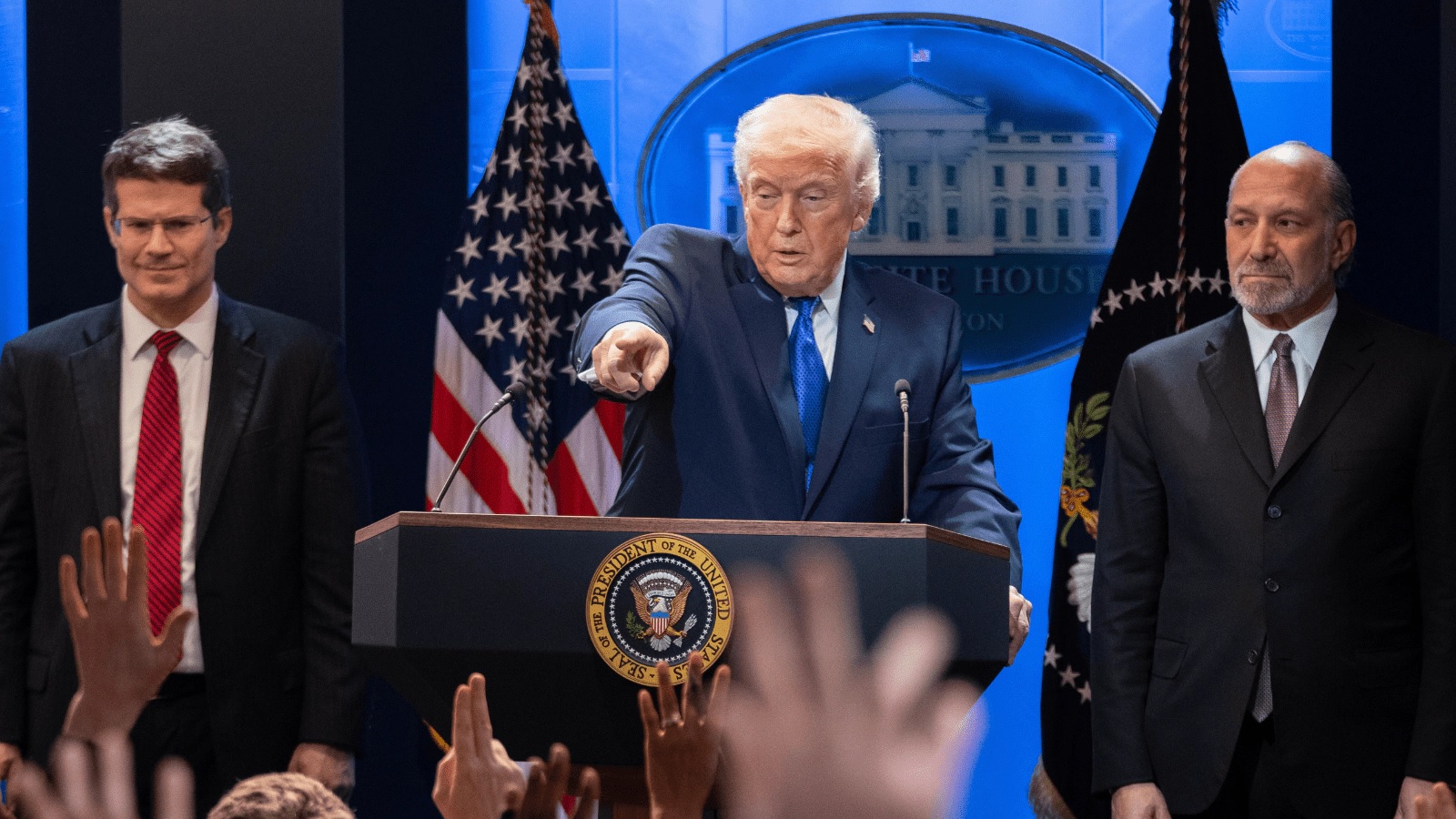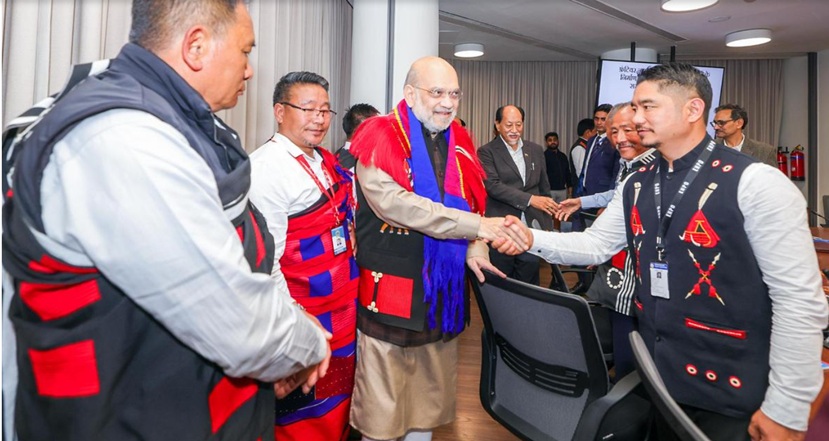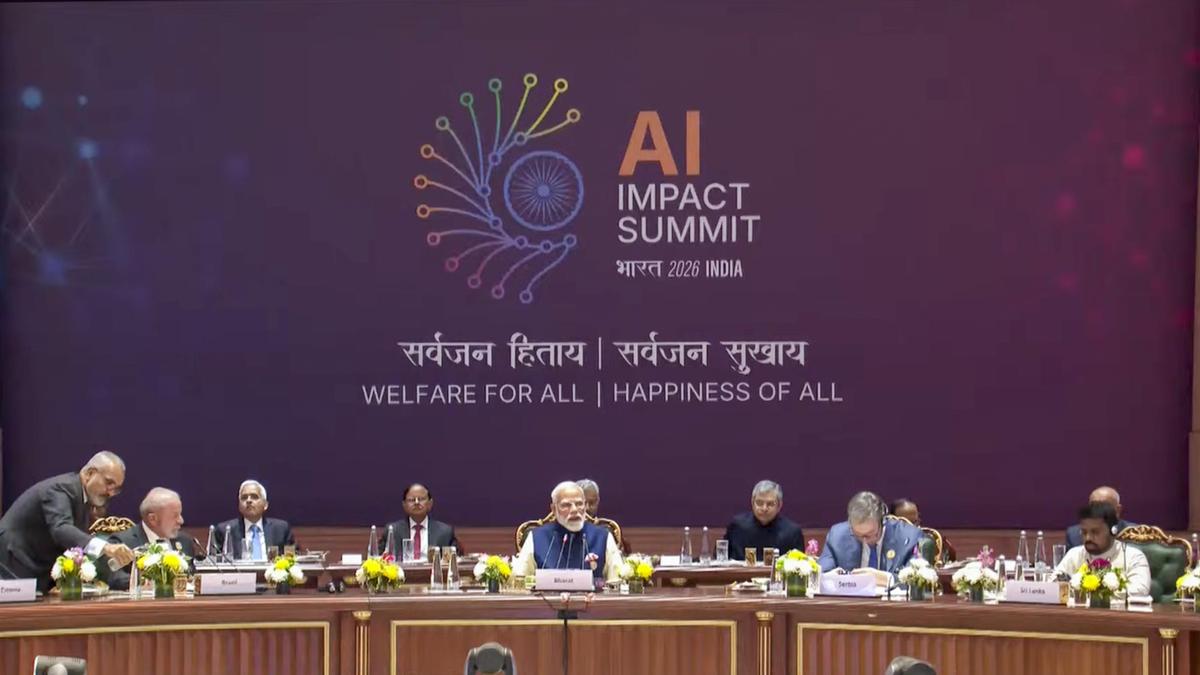What’s in Today’s Article?
- Why in News?
- What does the Representation of the People Act 1951 (RP Act) Say?
- What does the Model Code of Conduct (MCC) Provide?
- History of Implementation of the RP Act and the MCC
- What has the SC Ruled in the Abhiram Singh vs CD Commachen (2017)?
- Way Ahead for Political Parties and Candidates
Why in News?
Recently the BJP lodged a complaint with the Election Commission of India (ECI) against a prominent opposition leader for hurting the sentiments of Hindus through his remark on ‘shakti’.
The DMK, in turn, filed a counter complaint against the PM for appealing to religious sentiments during his campaign on the same issue.
What does the Representation of the People Act 1951 (RP Act) Say?
- Section 123(3) of the RP Act provides that appeals by a candidate or any other person, to vote or refrain from voting on the ground of his/her religion, race, caste, community or language is a corrupt electoral practice.
- Section 123(3A) denounces any attempt by a candidate to promote feelings of enmity or hatred among citizens on these grounds during elections.
- The RP Act further provides that anyone found guilty of corrupt electoral practice can be debarred from contesting elections for a maximum period of up to six years.
What does the Model Code of Conduct (MCC) Provide?
- The MCC for the guidance of political parties and candidates is a set of norms which has evolved with the consensus of political parties.
- Though the MCC has no statutory backing, it has grown in strength as a result of the ECI’s strict enforcement since its implementation in the 1990s.
- This code provides that no party or candidate shall indulge in any activity which may aggravate existing differences or create mutual hatred or cause tension between different castes, religious or linguistic communities.
- It also provides that there shall be no appeal to caste or communal feelings for securing votes.
- Mosques, churches, temples or other places of worship shall not be used as a forum for election propaganda.
History of Implementation of the RP Act and the MCC
- Before 1961, Section 123(3) of the RP Act provided that ‘systemic’ appeal by a candidate on the grounds of religion, race, caste or community would amount to a corrupt electoral practice.
- However, in order to curb communal, fissiparous and separatist tendencies, the word ‘systemic’ was omitted through an amendment in 1961.
- This meant that even a stray appeal for success in the elections on the ground of one’s religion or narrow communal affiliation would be viewed with disfavour by the law.
- There have been innumerable instances in the past where various parties and its leaders have blatantly appealed for votes in the name of religion.
- There are leaders across political parties against whom cases have been registered under the RP Act and the Indian Penal Code in this regard.
- However, the only notable leader who was convicted by the Supreme Court for this corrupt electoral practice was Bal Thackeray of Shiv Sena in the year 1995.
- The ECI on such occasions at best bars leaders from campaigning, for violation of the MCC, for a short period of two to three days.
What has the SC Ruled in the Abhiram Singh vs CD Commachen (2017)?
- A 7-judge Bench by a majority of 4:3 held that candidates shall not appeal for votes on the basis of not just his/her religion but also that of the voters.
- The majority view provided a ‘purposive interpretation’ to Section 123(3) rather than just a literal one.
- The apex court held that –
- The elections to Parliament or State legislatures are a secular exercise.
- Constitutional ethos forbids the mixing of religious considerations with the secular functions of the State.
- Religion should remain a matter of personal faith.
Way Ahead for Political Parties and Candidates
- Political Parties and candidates are likely to raise legitimate concerns of citizens faced by them on the basis of traits having origin in religion, caste, community or language in a democratic election process.
- However, it should be to only address their grievances through appropriate policies without jeopardising the secular fabric and fraternity of the country.
- Any appeal in the name of religion only results in the further polarisation of India’s multi-religious society, disturbing the secular fabric of its polity and a clear violation of law.
- Religious leaders have thrown their weight behind candidates of various parties.
- These practices should ideally be avoided in order to ensure that politics and religion are not mixed up.
- However, the primary responsibility lies with political party leaders and candidates. Their campaigns on the basis of religion not only.
- The ECI and courts should devise mechanisms for swift action against those violating the law in this regard.
Q1) What is the significance of the Representation of the People Act (RPA) 1951?
The RPA 1951 provides for the conduct of election of the Houses of Parliament and to the House or Houses of the Legislature of each State, the qualifications and disqualifications for membership of those Houses, the corrupt practices in connection with such elections, etc.
Q2) What is the significance of the Model Code of Conduct (MCC)?
The MCC is a set of guidelines issued by the ECI for the conduct of political parties and candidates during elections mainly with respect to speeches, meetings, processions, polling day, polling booths, observers, party in power, election manifestos, and general conduct.
Last updated on February, 2026
→ UPSC Notification 2026 is now out on the official website at upsconline.nic.in.
→ UPSC IFoS Notification 2026 is now out on the official website at upsconline.nic.in.
→ UPSC Calendar 2026 has been released.
→ UPSC Final Result 2025 is expected to be released in the second week of April 2026.
→ Check out the latest UPSC Syllabus 2026 here.
→ Join Vajiram & Ravi’s Interview Guidance Programme for expert help to crack your final UPSC stage.
→ UPSC Mains Result 2025 is now out.
→ UPSC Prelims 2026 will be conducted on 24th May, 2026 & UPSC Mains 2026 will be conducted on 21st August 2026.
→ The UPSC Selection Process is of 3 stages-Prelims, Mains and Interview.
→ Prepare effectively with Vajiram & Ravi’s UPSC Prelims Test Series 2026 featuring full-length mock tests, detailed solutions, and performance analysis.
→ Enroll in Vajiram & Ravi’s UPSC Mains Test Series 2026 for structured answer writing practice, expert evaluation, and exam-oriented feedback.
→ Join Vajiram & Ravi’s Best UPSC Mentorship Program for personalized guidance, strategy planning, and one-to-one support from experienced mentors.
→ Check UPSC Marksheet 2024 Here.
→ UPSC Toppers List 2024 is released now. Shakti Dubey is UPSC AIR 1 2024 Topper.
→ Also check Best UPSC Coaching in India




















